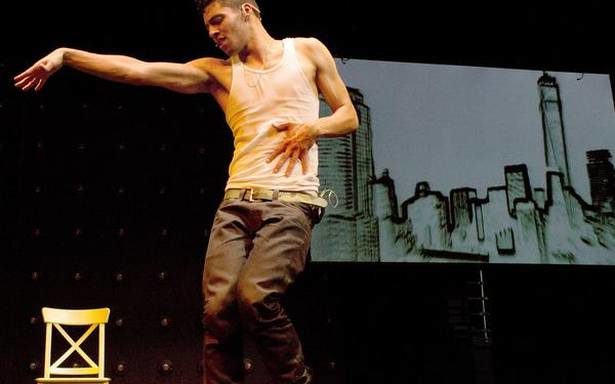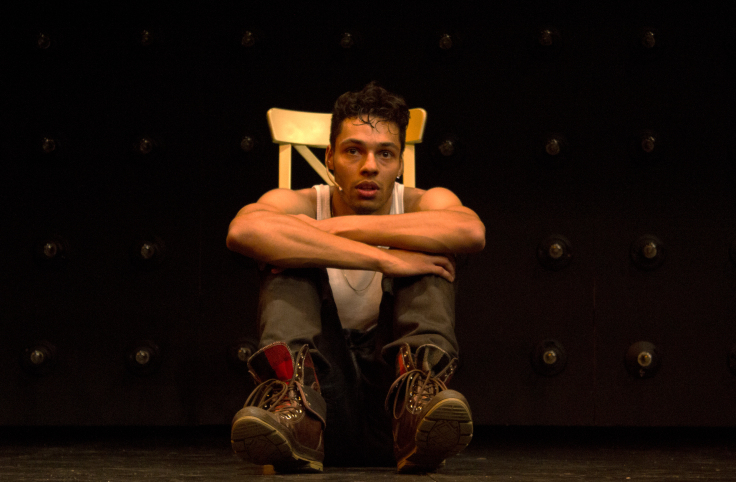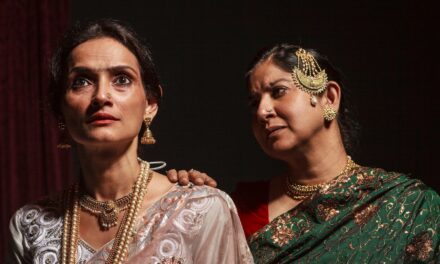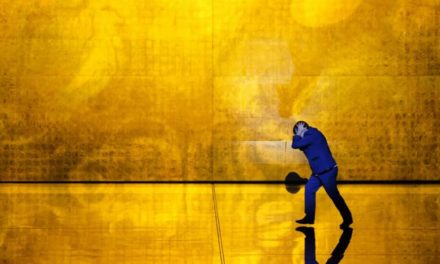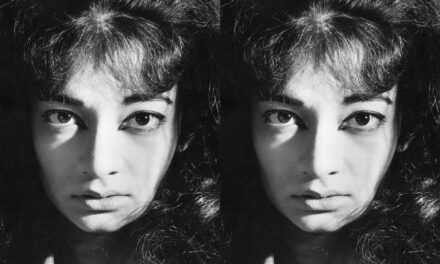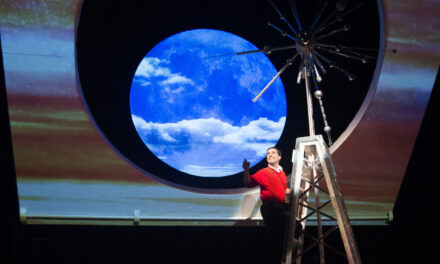Actor-musician-dancer Sebastien Heins delves into human redemption and fraternal love with his show.
When we talk, Canadian-Jamaican actor Sebastien Heins isn’t on stage, but he might as well be. Each of his movements is performative. His gesticulations are measured, deliberate even, just like his words. His demeanour articulates what is obvious: Heins is a trained actor and dancer. His education, though, came at age ten, during the nine months he spent starring as Simba in the Canadian production of The Lion King in Toronto. “When it ended, it was still hard to find my identity. There’s this re-jigging of how to introduce myself, and I wanted to be a kid afterwards,” says Heins.
Then in Class VII and already obsessed with hip-hop, Heins had found an outlet for his self-expression and cemented his passion for theatre. “[Hip-hop allowed me to] interact with kids I felt shy around. It became a safe place for me and a place of true expression through dance.”
Creative process
Revisiting the two things that shaped Heins’s life and career is pertinent to understand his one-man show, Brotherhood: The Hip Hopera. After all, when the opportunity arrived to create a 15-minute solo show at the National Theatre School of Canada, the then student knew it had to have hip-hop. At that point, Heins was listening to R. Kelly’s epic rap opera Trapped in the Closet, which has a colossal 33 chapters released over seven years. “I don’t know why, but I watched a lot of music videos. I was really moved by the slow motion and the storytelling. And I thought hip-hop was a potent way of telling a story.” Heins, however, wanted to create art with theatre, dance and music, but he had never written a song before. Endless hours were spent dabbling with the iOS app GarageBand, experimenting on the piano, finding sonic patterns and researching song structures. And when success seemed most elusive, Heins chipped away at the process to create his own style. The actor says the sound in his play evolved from effects where the pitter-patter of rain will segue into the beats of a song. “All of a sudden, my background in storytelling became my bedrock is music-making.”
The one-man show, with more than ten characters, no costume changes and few stage props, has three acts in all. Heins uses rhymes, spoken word, songs (R&B, funk and even rap) and dance to tell an epic story. There’s one segment depicting a love story, where the actor effectively mimes a character’s heart beating violently with excitement and infatuation. “Brotherhood is deeper than a lot of people think it is,” says Heins, alluding to the serious themes addressed in the show. Characters get drunk, shoot up drugs, go to prison and even deal with bereavement.
Sibling stories
The show chronicles the life and times of a set of twins, hip-hop stars who are deeply connected to each other. In a world where romantic love is revered beyond measure, the actor’s decision to celebrate family is unconventional. He reveals it came from an intense yearning to know what it would have been like to have a sibling. “When I got home [when I was young] I had nobody. I would play board games and chess against [myself]. I [had] to have the imagination for both the people.” The desire for a sibling accompanied by the untimely death of a cousin gave way to the themes and depth of Brotherhood. “I saw [my cousin] as a contemporary, and when he died, I felt like I was robbed of my family. I felt like I [already] had so little family.”
In Brotherhood, when tragedy strikes in the form of an accident killing one of the siblings, the other must reassess his identity outside of a unit of two, hit rock bottom and eventually rise from the ashes. “We lull people into a sense of satire, but by the end of the show, it’s super grounded in reality.”
Set in contemporary times, Brotherhood travels back to the ’70s, offering context to hip-hop’s roots. “In order to understand the music today you have to go to understand the music form from before,” he says, adding that the love story of the twins’ parents starts out with the promise of love. When it descends into depravity, it offers the audience an understanding into the protagonists’ minds.
Desi special
It’s taken Heins and his production company Bcurrent an entire year to bring Brotherhood to India after the brief preview at Thespo in December 2015. In constant evolution, this version of the show will also feature three new scenes, including a monologue about Shakespeare and a freestyle rap. There will also be an entirely new song for Indian audiences, “that has Latin American and salsa beats mixed with a hip-hop track that the manager of the twins [performs] at the end of the show”, says the actor.
Brotherhood: The Hip Hopera wase performed from February 24 to February 26 at Sitara Studio, Dadar (West). Visit insider.in for details.
This post was written by the author in their personal capacity.The opinions expressed in this article are the author’s own and do not reflect the view of The Theatre Times, their staff or collaborators.
This post was written by Deborah Cornelious.
The views expressed here belong to the author and do not necessarily reflect our views and opinions.

